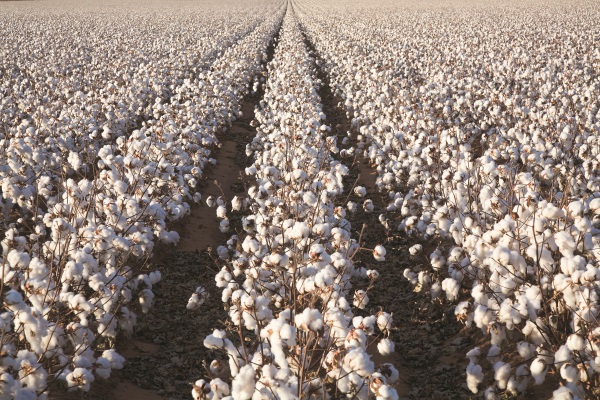Thirty Textile Companies Already on Board with Cotton LEADS Program
Two months after the launch of the Cotton LEADS program, 30 textile companies ─ suppliers to some of the world’s most recognizable apparel brands ─ have formally acknowledged the merits of the program’s cotton and now include it within their sustainable sourcing guidelines.
Cotton LEADS is a joint program of the Australian and United States cotton industries and is a project of The Cotton Foundation. The program is designed to raise awareness of the responsible growing practices and commitment to continuous improvement among cotton producers in the member countries.
Cotton Australia, the National Cotton Council of America, Cotton Council International and Cotton Incorporated are the founding members of the program.
Some of the world’s most well-known textile companies have already signed on to the Cotton LEADS program, including Fruit of the Loom; Central Textiles; Tuscarora Yarns; Mount Vernon Mills; the Esquel Group and others located in the U.S., Taiwan, China and Europe.
Fruit of the Loom was one of the first companies to sign on to the Cotton LEADS program.
“Fruit of the Loom continues to strive for the highest level of corporate responsibility in our supply chain,” noted Tony Pelaski, the brand’s chief operating officer. “As a member of Cotton LEADS, we are assuring consumers of our commitment to sustainability and traceability in the cotton we use in our products.”
Cotton LEADS is committed to continuous improvement in farm production practices, environmental stewardship and the dissemination of best practices information broadly throughout the world’s cotton producing countries. The program emphasizes the environmental gains achieved at a national level within the two current member nations, as well as the national oversight and capabilities of the U.S. and Australian cotton industries.
Combined, Cotton LEADS cotton accounts for roughly 17 percent of global production. It also helps assure a ready supply of responsibly-grown cotton to a textile industry that is increasingly interested in sustainable and traceable production practices and commitments to ongoing improvement.
Source: National Cotton Council









